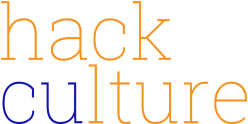Each weekend will include a different team-based challenge that will encourage participants to learn new skills. Students will also participate in team-building exercises each weekend to help them decide who they might want to work with for a final project. The last week will be spent working in a team to complete a final challenge, to be presented and judged at the March 1st finale.
Saturday, February 2nd, 10:30am – 2:30pm
Data Literacy
What is data? This first section on data literacy will allow students to explore several key principles: 1) the ways they use data in their lives, 2) common pitfalls in the collection, analysis, and distribution of data and information, and 3) how to determine the authenticity and truthiness of the information they create and seek.
Saturday, February 9th, 10:30am – 2:30pm
Data Cleaning
In this workshop, participants will learn about data cleaning—also known as making a dataset “fit for use”—as well as perform common data cleaning tasks on an actual dataset. We will discuss concepts like use cases and goals, use tools like regular expressions and OpenRefine, and practice good data management. Through hands-on activities, participants will develop familiarity with common approaches and tools, and will apply this knowledge to a dataset and share their results. No prior knowledge of or experience with data cleaning presumed.
Saturday, February 16th, 10:30am – 2:30pm
Data Analysis
The hardest part of data analysis can be determining an appropriate question. Your question determines which statistical methods are most appropriate, how your hypotheses can be phrased, and the potential power of your findings. Drilling down from idea to question to testable hypotheses is a challenge, and that’s the basis of this challenge! This session will take small groups through a series of hands on activities geared toward helping you come up with a interesting and powerful question. We’ll use real datasets to explore how you can start asking powerful questions from existing data. Your group will attempt to come up with the best research question you can for that data and showcase it as part of the challenge.
Saturday, February 23rd, 10:30am – 2:30pm
Data Visualization and Communication
In this session we will consider how to use data to communicate visually. We will look at what data is in its most basic form and consider how to use visualization as a way to help analyze that data and communicate our analysis. The presenter’s experience is situated in geospatial data and qualitative data visualization and analysis. The session will begin with examples of data visualizations to inspire participants to consider different ways to use their data as part of their communication strategies.
The second part of the session will include two hands on activities. We will use UX analysis strategies to map out qualitative data and discover the ways in which using visualization can help us analyze our data and explain the insights we have to new audiences. We will also explore a simple web based open source geospatial mapping tool, by importing data, and adding layers of information.
Friday, March 1st, 5:30pm
Finale
Present your final projects and win prizes!
HackCulture projects are not limited to software or hardware. Examples of project outcomes could include, but are not limited to, a mobile app, a website, a video, an infographic, or a tangible object. Projects should utilize the skills and interest of all team members, and provide a new perspective to existing data.
Your presentation should:
– utilize some sort of visual (for example, slides, a live website, or a physical prototype),
– be completed within 5 minutes (it will be timed), and
– involve all team members.
We recommend reviewing the judging criteria when creating your project as well as the presentation.
